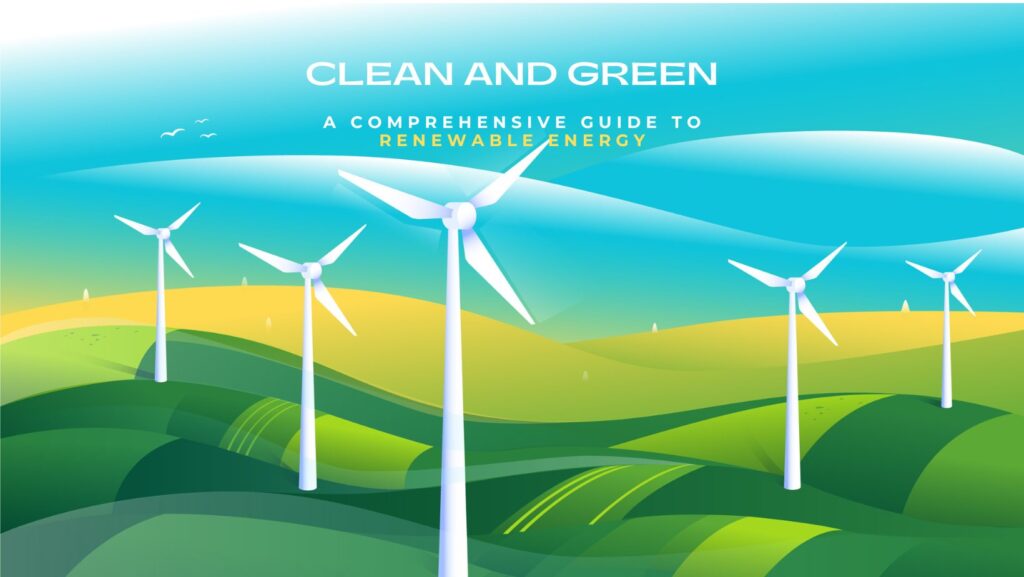Understanding Sustainable Energy: A Comprehensive Guide

Sustainable energy is vital for our planet's future. This guide offers an in-depth look at renewable energy sources, energy conservation, and the environmental and social impact of our energy choices, all key components of sustainable energy.
What is Sustainable Energy?
Sustainable energy is about meeting today's energy needs without compromising future generations' ability to meet theirs.
Definition and Importance
Sustainable energy refers to energy sources that are renewable and environmentally friendly. It's crucial for reducing greenhouse gas emissions and combating climate change, aligning with global sustainability goals.
Meeting the Needs of the Present and Future
Sustainable energy aims to balance current energy use with the need to preserve resources for the future, ensuring a harmony between economic development, energy efficiency, and environmental protection.
Sustainable energy isn't just about the environment; it also considers economic and social factors, such as energy accessibility and affordability, and the role of renewable energy in sustainable development.
Renewable Energy Sources
Renewable energy sources like wind and solar are essential for a sustainable energy strategy.
Wind Energy: Harnessing the Power of Wind
Wind energy uses turbines to convert wind movement into electricity. It's a clean, renewable source that reduces carbon emissions and contributes to energy sustainability.
Solar Energy: Utilizing the Sun's Potential
Solar energy captures sunlight through solar panels and converts it into electricity. It's one of the cleanest and most abundant energy sources available, playing a vital role in sustainable energy solutions.
Hydroelectric Power: Energy from Water
Hydroelectric power uses water flow, usually from dams, to generate electricity. It's a constant and renewable energy source, contributing to energy conservation and sustainability.
Geothermal Energy: Tapping into Earth's Heat
Geothermal energy uses the Earth's internal heat to generate electricity or heat water. It's a clean, constant energy source that aligns with sustainable energy principles.
Bioenergy: Energy from Organic Material
Bioenergy is derived from organic materials like plants and animals. It can be used to generate electricity or produce biofuels, contributing to renewable energy and sustainability.
Conservation and Efficiency
Energy conservation is essential to maximize our renewable energy sources and reduce our dependence on fossil fuels.
Reducing Energy Consumption
Energy conservation involves taking steps to reduce our consumption, such as turning off lights when not needed or improving insulation in buildings, all contributing to energy efficiency and sustainability.
Efficient Energy Use in Appliances and Buildings
Energy efficiency refers to using technologies and practices that consume less energy for the same function, like energy-efficient appliances or eco-friendly building design, aligning with sustainable energy goals.
Why the US isn't ready for clean energy
Conclusion
Sustainable energy is more than just a trend; it's a necessity for our planet's future. By embracing renewable energy sources, focusing on energy conservation, and understanding the multifaceted nature of sustainability, we can pave the way for a cleaner, greener future. This comprehensive guide has explored the various aspects of sustainable energy, from wind and solar power to energy efficiency and environmental impact. By adopting these principles, we can all contribute to a sustainable future, reducing our carbon footprint and ensuring that our energy needs are met in a responsible and sustainable manner.
Frequently Asked Questions (FAQs)
What is Sustainable Energy?
Sustainable energy refers to energy sources that are renewable, environmentally friendly, and do not deplete natural resources. It includes solar, wind, hydroelectric, geothermal, and bioenergy.
Why is Sustainable Energy Important?
Sustainable energy is vital for reducing greenhouse gas emissions, combating climate change, and ensuring that future generations have access to clean, renewable energy sources.
How Can I Contribute to Sustainable Energy?
Individuals can contribute by using energy-efficient appliances, reducing energy consumption, supporting renewable energy sources, and advocating for sustainable energy policies.
What are the Main Sources of Renewable Energy?
The main sources of renewable energy include solar, wind, hydroelectric, geothermal, and bioenergy. These sources are replenished naturally and do not contribute to climate change.
Is Nuclear Energy Considered Sustainable?
Nuclear energy is often debated in the context of sustainability. While it does not emit greenhouse gases like fossil fuels, concerns about nuclear waste and safety issues make its classification as a sustainable energy source complex.
How Does Energy Efficiency Contribute to Sustainability?
Energy efficiency means using less energy to perform the same task, reducing energy waste. It contributes to sustainability by lowering energy consumption, reducing emissions, and supporting the broader goals of energy conservation.

Leave a Reply